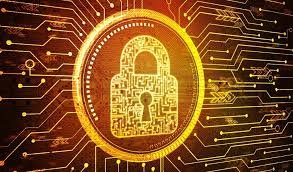
You may wonder why cryptography is so important and the people need to study more about it. We will learn more about the cryptography and the awareness that every information specialist should know about cryptography and its importance. Cryptography - is the study of mathematical techniques related to the aspects of information security such as confidentiality, data integrity, authentication and data origination. We are going to see the history and science of cryptography. The science behind every form of security, authentication mechanisms, information or data safety, in our words, information security and what not. The reason is, whichever operating system you use, whatever programs or authentication systems you deploy, the actual strength of the system to withstand attacks against possible ways depends highly on the underlying cryptosystem.
Why Cryptography? The main use of cryptography is to provide the following as mentioned earlier. (1) privacy or confidentiality (2) data integrity (3) authentication and (4) non-repudiation. 1. Confidentiality is a service used to keep the content of information from all but those authorized to posses it. Secrecy is a term synonymous with confidentiality and privacy. There are numerous approaches to providing confidentiality, ranging from physical protection to mathematical algorithms which render data unintelligible. 2. Data integrity is a service which addresses the unauthorized alteration of data. To assure data integrity, one must have the ability to detect data manipulation by unau-thorized parties. Data manipulation includes such things as insertion, deletion, and substitution. 3. Authentication is a service related to identification. This function applies to both entities and information itself. Two parties entering into a communication should identify each other. Information delivered over a channel should be authenticated as to origin, date of origin, data content, time sent, etc. For these reasons this aspect of cryptog-raphy is usually subdivided into two major classes: entityauthentication and dataorigin authentication. Data origin authentication implicitly provides data integrity (for if a message is modified, the source has changed). 4. Non-repudiation is a service which prevents an entity from denying previous commitments or actions. When disputes arise due to an entity denying that certain actions were taken, a means to resolve the situation is necessary. For example, one entity may authorize the purchase of property by another entity and later deny such autho-rization was granted. A procedure involving a trusted third party is needed to resolve the dispute. A fundamental goal of cryptography is to adequately address these four areas in both theory and practice. Cryptography is about the prevention and detection of cheating and other malicious activities and to secure what you have as sensitive information.
Modern Cryptography The classification divides itself as the method of enciphering the plaintext to ciphertext differs into various methods that are devised. The cyptography branches itself into Symmetric Key cryptography often known as conventional cryptogrphy or secret-key cryptography and public-key cryptography (asymmetric key cryptography) or public/secret pair cryptography. The symmetric key technique further classifies itself into Block ciphers and Stream ciphers.
The latest trends have opened for the AES Advanced Encryptions Standards and many algorithms have been submitted for the review. Some of them approved and under analysis. They are IDEA, RC5, RC6 Rjindael, MARS, Two-fish, Blowfish, Diamond, Sapphire etc. The inventions grow as the need increases. As per the truth, the importance of cryptography as given has a big response from scientific and legal bodies. Today, by the invention of high speed machines and high bandwidth transmission rates, people are planning to go further. The famous e=mc2 has stepped into cryptography also. The japanese have undertaken the improvement and implementation of quantum cryptography which uses the properties of the atoms and its inner particles for data integrity, which off course has a long way to go. The first commercially available quantum-cryptographic product is expected to be release around 2040's